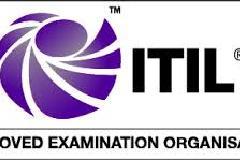ITIL Intermediate Service Operation
Â
Service Operation (SO) aims to provide best practice for achieving the delivery of agreed levels of services both to end-users and the customers. Also the monitoring of problems and balance between service reliability and cost etc. are considered. The functions include technical management, application management, operations management and service desk as well as, responsibilities for staff engaging in Service Operation.
Â
Syllabus:
Â
Introduction to service operation
Objectives â?? Full understanding of service operation terms and core concepts.
- The purpose, objectives and scope of service operation
- The value to the business
- The context of service operation in the ITIL service lifecycle
- The fundamental aspects of service operation and the ability to define them.
Â
Service operation principles
Objectives â?? The knowledge, interpretation and analysis of service operation principles, techniques and relationships and their application to the delivery and support of services at agreed levels.
- How an understanding of the basic conflict between maintaining the status quo and adapting to changes in business needs can lead to better service operation
- Other service operation principles including: involvement in other lifecycle stages; understanding operational health; the need for good documentation and communication including a communication strategy
- Service operation inputs and outputs.
Â
Service operation processes
Objectives â?? The knowledge, interpretation and analysis of service operation principles, techniques and relationships and their application to the delivery and support of services at agreed levels.
- The use, interaction and value of each of the service operation processes: event management, incident management, request fulfilment, problem management, and access management.
Â
Common service operation activities
Objectives â?? The knowledge, interpretation and analysis of service operation principles, techniques and relationships and their application to the delivery and support of services at agreed levels.Â
- How the common activities of service operation are co-ordinated for the ongoing management of the technology that is used to deliver and support the services
- How monitoring, reporting and control of the services contributes to the ongoing management of the services and the technology that is used to deliver and support the services
- How the operational activities of processes covered in other lifecycle stages contribute to service operation
- How IT operations staff should look for opportunities to improve the operational activities.
Â
Organizing for service operation
Objectives â?? The knowledge, interpretation and analysis of service operation principles, techniques and relationships and their application to the delivery and support of services at agreed levels.
- The role, objectives and activities of each of the four functions of service operation: service desk, technical management, IT operations management, and application management
- Service operation roles and responsibilities, where and how they are used as well as how a service operation organization would be structured to use these roles.
Â
Technology considerations
Objectives â?? The knowledge, interpretation and analysis of service operation principles, techniques and relationships and their application to the delivery and support of services at agreed levels.Â
- The generic requirements of technologies that support service management across all lifecycle stages
- The specific technology required to support the service operation processes and functions.
Â
Implementation of service operation
Objectives â?? The knowledge, interpretation and analysis of service operation principles, techniques and relationships and their application to the delivery and support of services at agreed levels.Â
- Specific issues relevant to implementing service operation including: managing change in service operation; assessing and managing risk in service operation; operations staff involvement in service design and service transition
- Planning and implementing service management technologies within a company.
Â
Challenges, critical success factors and risks
Objectives â?? The knowledge, interpretation and analysis of service operation principles, techniques and relationships and their application to the delivery and support of services at agreed levels.Â
- The challenges (e.g. engagement with staff outside service operation, justifying funding), critical success factors (e.g. management and business support, staff retention) and risks (e.g. loss of service) related to service operation.










